Our Partners
The Institutions collaborating at the ImproComp Project
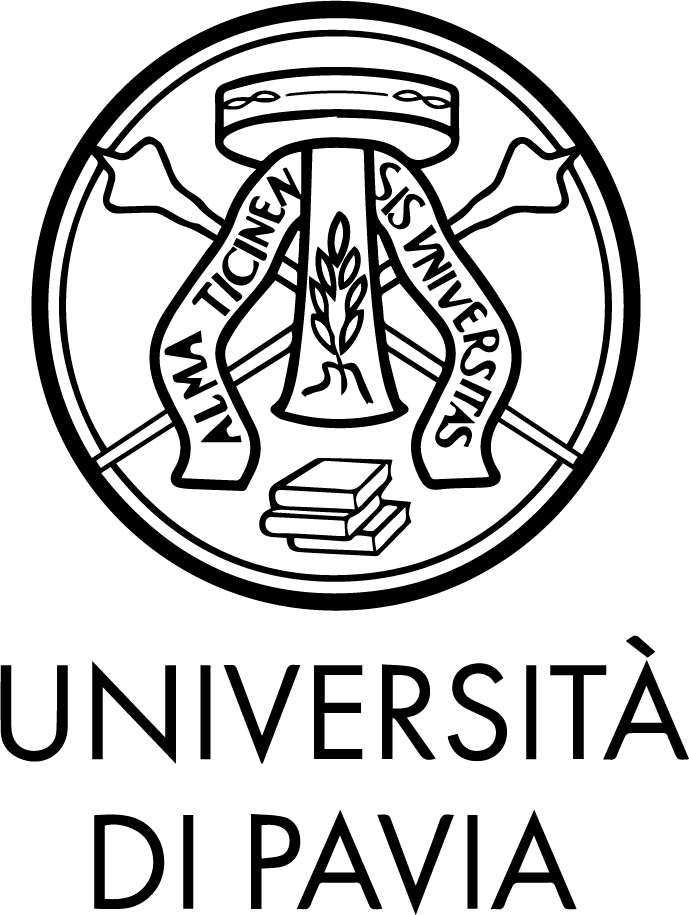
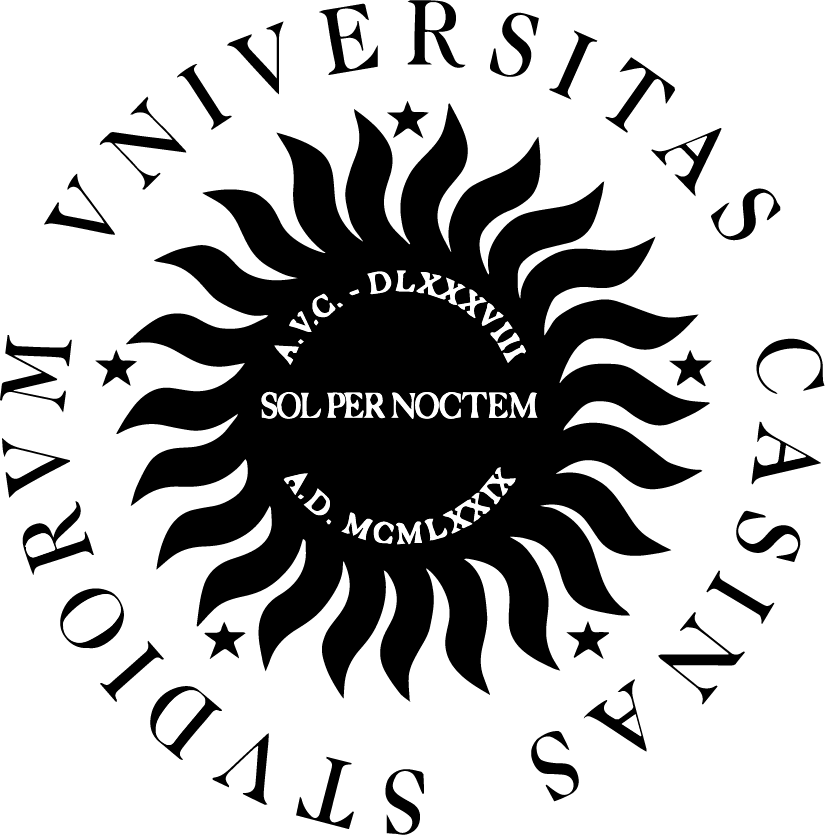


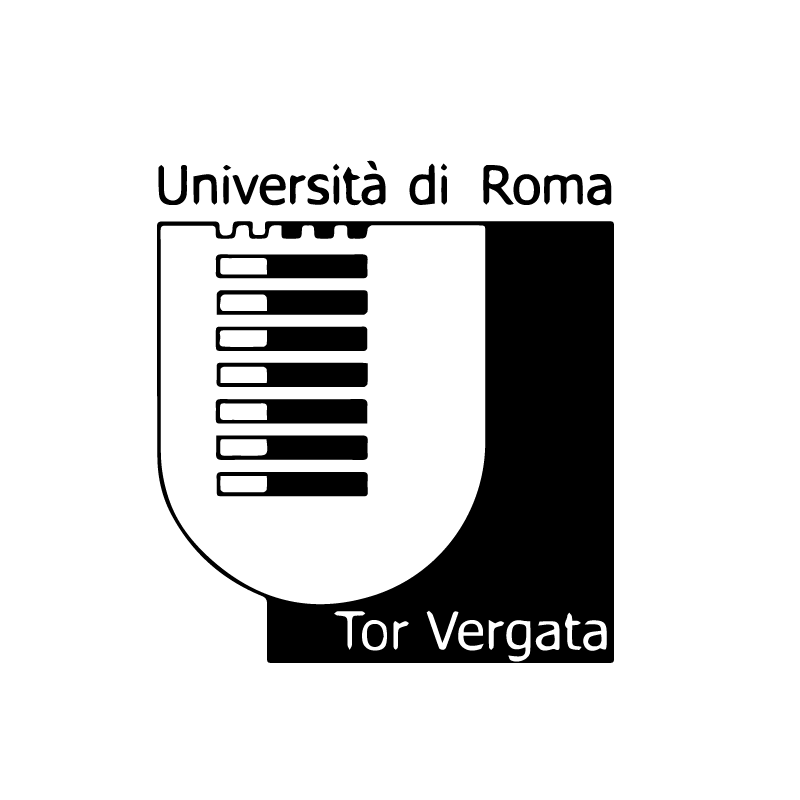
The workshop will explore the complex ecosystem made of historical instruments, musicians, and space. The aim is to investigate how the specific affordances of the keyboards shape the motoric patterns used by the improviser and help them achieve better control of musical structures. This embodied perspective considers the sound qualities of historical instruments as an indispensable component of artistic creation and a viable tool for absorbing a specific style and musical idiom.
Two of the leading musicians and researchers in historical improvisation will experiment and musick with a selected group of advanced improvisers, in a constant dialogue with scholars and musicologists. A limited number of students will also be able to participate in some of the activities.
June 13, Aula Magna, Dipartimento di Musicologia e Beni Culturali
9.30 – 11.20 Technical Set up and Interview shooting
———-
15.00 – 17.00 Musicking on Early Keyboards: an Embodied Approach
———-
18.30 – 19.30 Improvisation on a given subject (open to public): Bellotti, de Vries
———-
20.00 Dinner
June 14, Aula Magna, Dipartimento di Musicologia e Beni Culturali
9.30 – 12.30 Gaetano Aveta Organ, 1833, Monteverdi Cypress Pipe Organ and Italian Harpsichord by Walter Chinaglia and other historical keyboards from the Collection of Musical Instruments of the University of Pavia
Workshop:
a) Introduction: 5 tasks presented and preliminary observations 30′
b) Tasks 1, 2 (each of them has a 45’ slot)
———-
12.30 Lunch break
———-
14.00 – 16.30 Workshop:
c) Tasks 3, 4a (each of them has a 45’ slot)
———-
17.00 – 18.30 Sant’Omobono, Cremona (t.b.c.), Anonymous Organ, XVIII century
d) Tasks 4b, 5a
———-
20.00 Dinner
———-
21.30 Private location, In Search for Subjectivity, Fantasieren on a copy of a Friederici Clavichord
June 15, Basilica Palatina di Santa Barbara, Mantua Organ Graziadio Antegnati, 1565
7.30 Departure to Mantua (train and car pooling)
———
10.00 – 12.30 Workshop:
e) Tasks 4c, 5b
———
12.45 – 13.30 Closing Remarks: towards an embodied didactic of improvisation?
The instruments:
• The Monteverdi Organ
• Italian harpsichord
• Anonymous Organ
• Gaetano Aveta Organ
• Organo Graziadio Antegnati
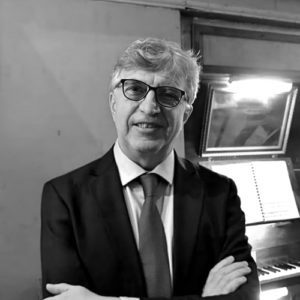
EDOARDO BELLOTTI
Internationally renowned organist and harpsichordist, Edoardo Bellotti is considered a leading expert of Renaissance and Baroque keyboard repertory and improvisation. In addition to his musical studies (Piano, Organ, Harpsichord) he studied humanities at the University of Pavia, his Italian native town, completing degrees in philosophy and theology.
Edoardo Bellotti taught organ and harpsichord performance and theory and practice of improvisation in several European institutions, including the conservatories of Milan, Trento, Udine and Pavia (Italy), Trossingen and Bremen (Germany) and has been invited as guest teacher in many institutions in Europe, Japan, South Korea, Canada and the United States. From 2013 to 2018, he served as an Associate Professor of Organ at the Eastman School of Music, University of Rochester. In October 2018, he was invited to coordinate a new curriculum at the University of the Arts in Bremen (Germany) where he taught Organ, Clavichord and Improvisation. In September 2023, he returned to Eastman as Associate Professor of Harpsichord, teaching Historical Keyboards and Continuo.
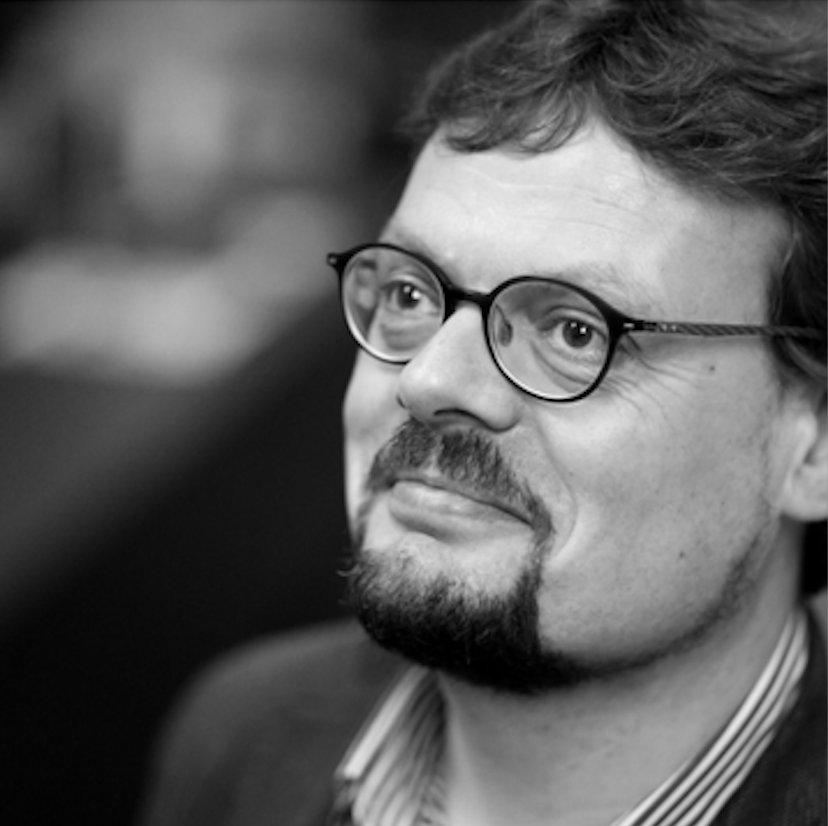
SIETZE DE VRIES
Sietze de Vries is internationally active both as a concert organist and church musician. His organ teachers included, among others, Wim van Beek and Jos van der Kooy, the latter with whom De Vries also studied improvisation, as well as with Jan Jongepier. In addition to his Bachelor’s and Master’s degrees he also holds the Dutch professional church music certificate with a specialisation in improvisation.
Sietze de Vries won no fewer than 15 prizes at various national and international organ competitions, some whilst still a student at the Conservatoria of Groningen and The Hague. These included his first prize at the Haarlem International Organ Improvisation Competition in 2002.
Since 2000, Sietze de Vries has been in demand throughout the world. In addition to his performances in Europe, he has also travelled to the United States, Canada, South Africa, Russia and Australia. As an (improvisation) teacher he is international demand, in addition to his post at the Prince Claus Conservatory in Groningen.
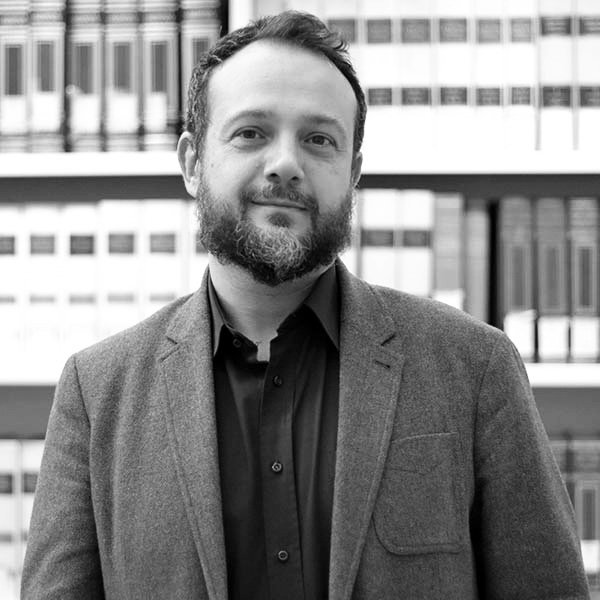
MASSIMILIANO GUIDO
Massimiliano Guido is an Associate Professor at the Musicology and Cultural Heritage Department of Pavia University, where he teaches courses on History of Musical Instruments and Historical Improvisation. At Cremona he was the Principal Investigator of the project “Music Theory While Playing”, Blue-Skye Research Grant (2017-19). He previously served as Banting Post Doctoral Fellow (2012-14) and PDRF Fellow (2011) at the Schulich School of Music, McGill University, where he worked on historical improvisation at the keyboard with Peter Schubert. In 2013-14 he was the principal investigator of the international research project “Improvisation in Classical Music Education: Rethinking our Future by Learning our Past”, funded by the Social Sciences and Humanities Research Council of Canada. He organized two international conferences on improvisation and he is the editor of Studies in Historical Improvisation: from Cantare super Librum to Partimenti (Routledge, 2017). He holds degrees in musicology (Pavia Univ. Doctorate and Laurea, Göteborg Univ. Master of Music Research), organ (Parma Conservatory) and harpsichord (Como Conservatory). His writings cover a variety of subjects, such as music theory, performance practice, organ building, and art song. He was the chair of the “Interest Group on Improvisation” of the Society of Music Theory (2016-18). He is also active as organist, harpsichordist, and clavichordist.
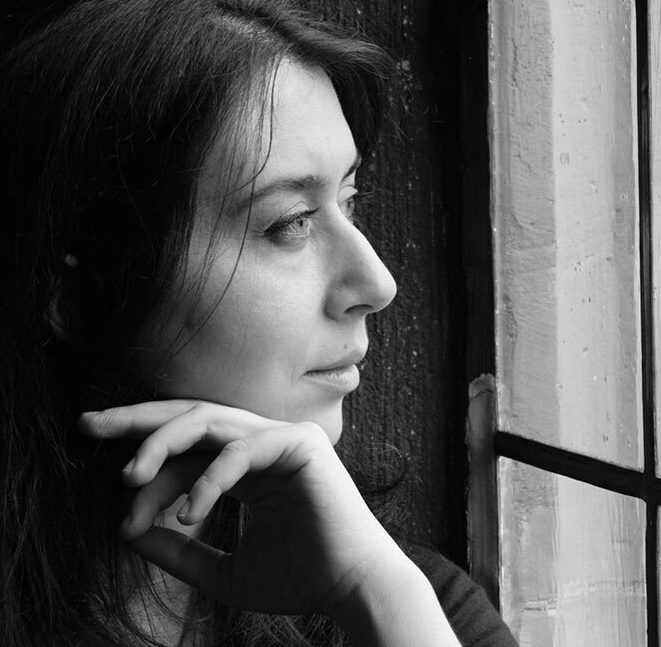
CATALINA VICENS
Praised by the international press as one of the most interesting musicians in the field of early music, Catalina Vicens’ dynamism and approach to historically informed performance and musicological research has led her to become one of the most versatile and sought-after historical keyboard performers and teachers of her generation.
Having specialized in performing on antique keyboard instruments (ranging from the 15th to the early 19th centuries), she has been invited to play on the oldest playable harpsichord in the world, featured in her recording “Il Cembalo di Partenope” (Diapason d’Or); the 15th-century gothic organ of St. Andreas in Ostönnen (one of the oldest and best-preserved organs in the world), as well as in a large number of prestigious collections in the UK, Europe, Japan and USA. She is also recognized for her work with medieval and renaissance keyboards, working alongside specialized instrument builders in the ‘reconstruction’ of new prototypes based on historical sources, and for her work alongside composers to give a new life to historical instruments.
In 2021, Vicens has been named curator of the Tagliavini Collection in Italy, one of the largest historical keyboard collections in Europe, and artistic director of Museo San Colombano in Bologna, as successor of the late Liuwe Tamminga, one of the leading experts of the Italian organ repertoire together with Maestro Luigi Ferdinando Tagliavini.
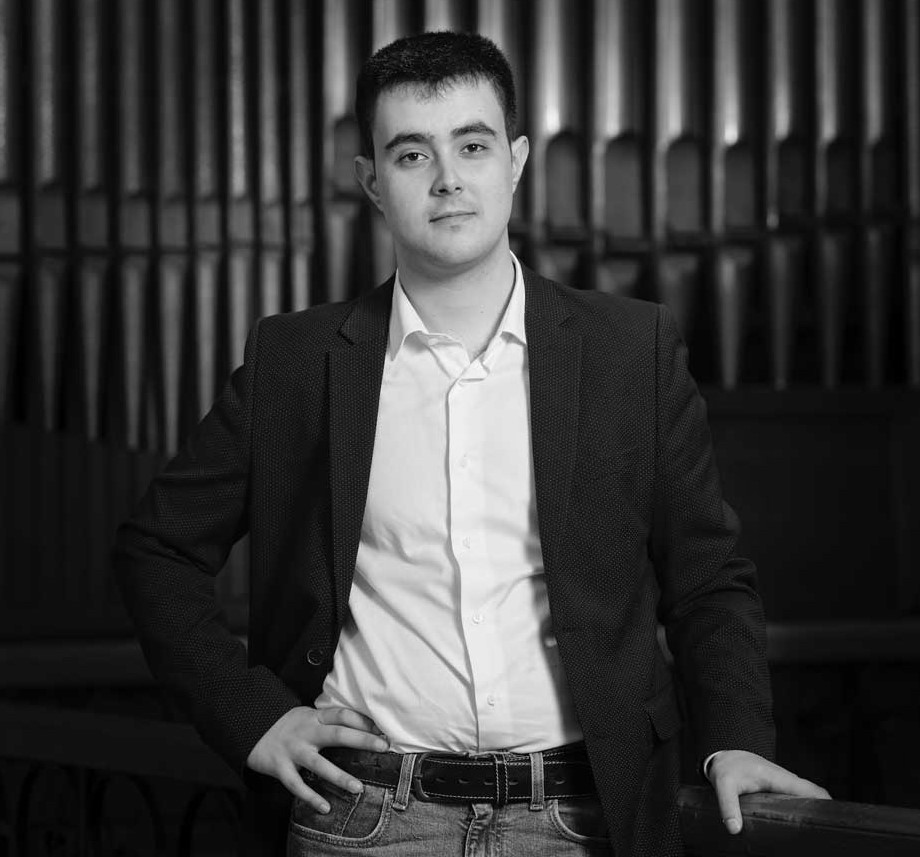
CARLOS BOLLO
Carlos Bollo studied the Professional Piano Degree at the Conservatorio Xan Viaño of Ferrol, graduating in 2018 with Honours in Piano and Improvisation.
Since that same year, he has been studying at the Prins Claus Conservatorium in Groningen (The Netherlands), where he graduated in 2022 in Organ (under the tutelage of Erwin Wiersinga, Sietze de Vries and, until 2021, Theo Jellema) and Piano (with Nata Tsvereli), finishing his degree studies in both instruments summa cum laude.
As part of her academic curriculum, he also studied fortepiano with Paul Komen and harpsichord and basso continuo with Johan Hoffman.
He also received master classes from pianists such as Boris Berman and organists such as Wolfgang Zerer and Michel Bouvard. Thanks to his activity as a liturgical organist in his homeland and in Groningen he developed as a skilled improviser. He has recently been awarded at the 5th Francisco Salinas Organ Competition in Burgos, Spain, with the First Prize and with the “Montserrat Torrent” Prince. From November 2023, he is also the Titular Organist of the Cathedral of Mondoñedo (Lugo, Spain).
He is currently studying for a master’s degree in organ at the Groningen Conservatory, specialising in improvisation with Sietze de Vries and in repertoire with Erwin Wiersinga.
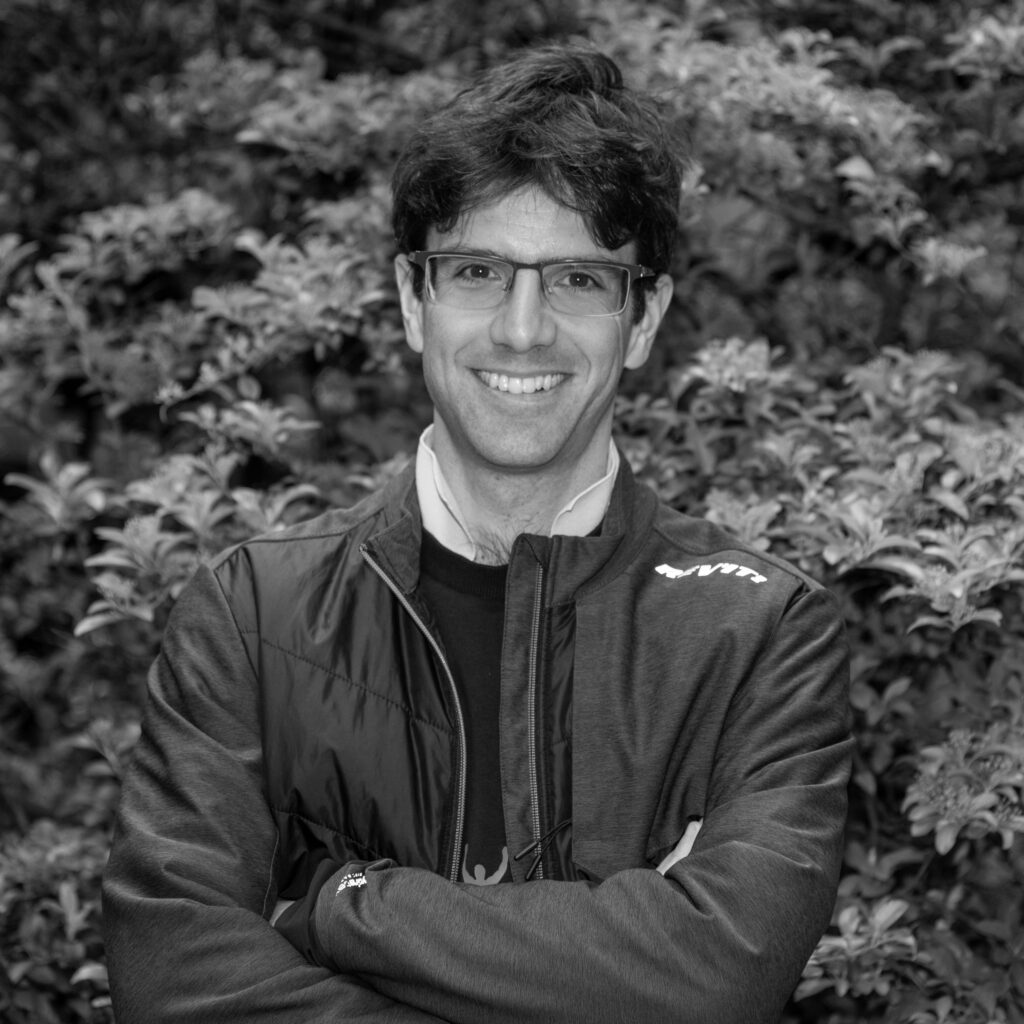
CLAUDIO CARDANI
Claudio Cardani studied organ at the Conservatorio della Svizzera Italiana in Lugano, Musicology at the Department of Musicology of the University of Pavia and obtained his PhD in Applied Musicology at the Pontifical Institute of Sacred Music in Rome in co-supervision with the Department of Musicology of the University of Pavia. In the academic year 2022-2023 he held the role of assistant to the chair of organ improvisation at the Pontifical Institute of Sacred Music. He is currently a research fellow at the Department of Musicology of the University of Pavia. His research interests concern musical improvisation and the history of sacred music.
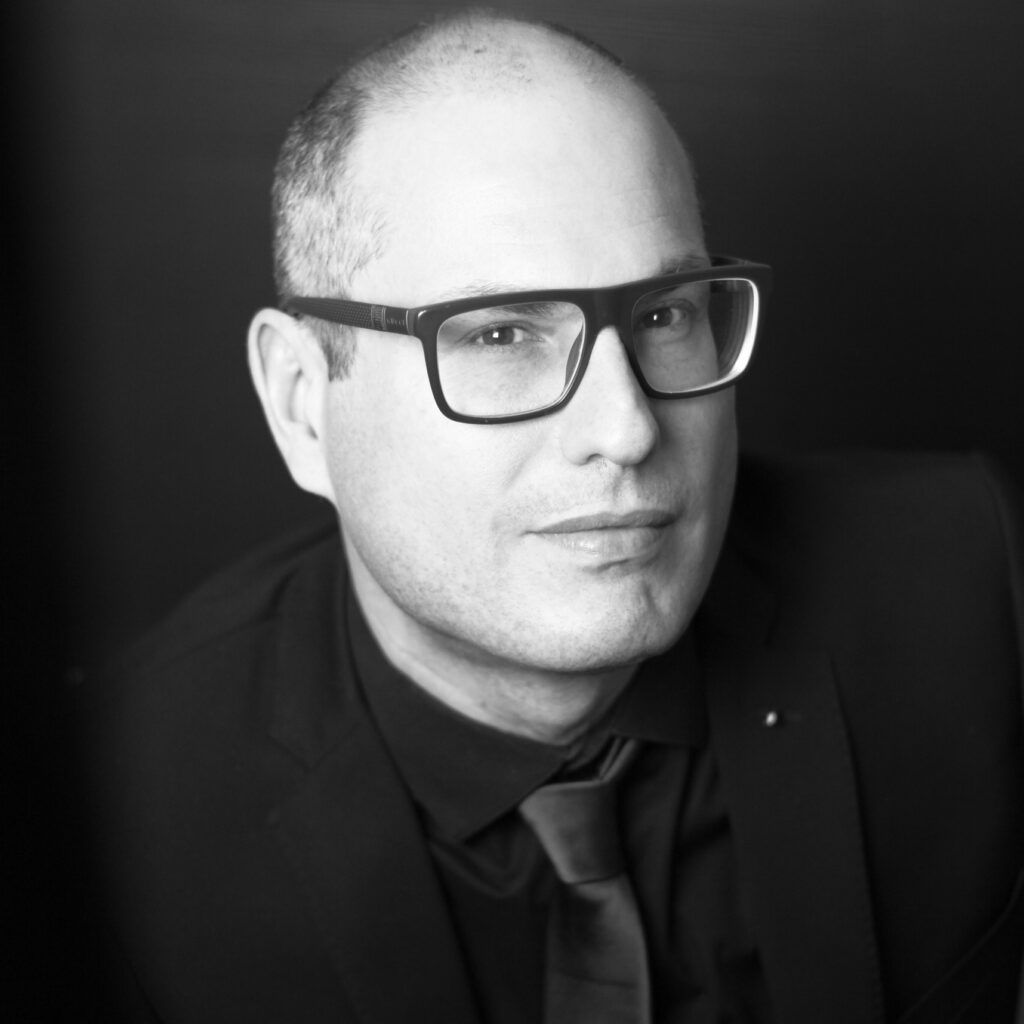
FABIO ANTONIO FALCONE
Fabio Antonio Falcone performs as a soloist and continuo player at international venues and festivals with several ensembles among which Ensemble Elyma, Stile Galante, Genève Baroque, Ensemble Lucidarium and Ensemble Odissee Orchestra with which he tours Europe and records CDs for different labels
Together with mandolin player Anna Schivazappa in 2012 he founded Pizzicar Galante, an ensemble specialized in galant repertoire for mandolin and basso continuo. In 2015 he also founded L’Amorosa Caccia, an ensemble with who he has been exploring instrumental and vocal repertoire from the Renaissance with a special focus on Italian frottolas and madrigals.
Besides his activity as a concert performer, he devotes himself to research in music didactics, in particular to the reconstruction of teaching practices from the analysis of historical sources. He is currently a member of the research group in didactics of the arts (DAM) at the University of Geneva.
He studied in the Netherlands with Bob van Asperen, as well as in Italy with Maria Luisa Baldassari and Jesper Bøje Christensen, and in Switzerland with Francis Biggi and Kenneth Weiss.
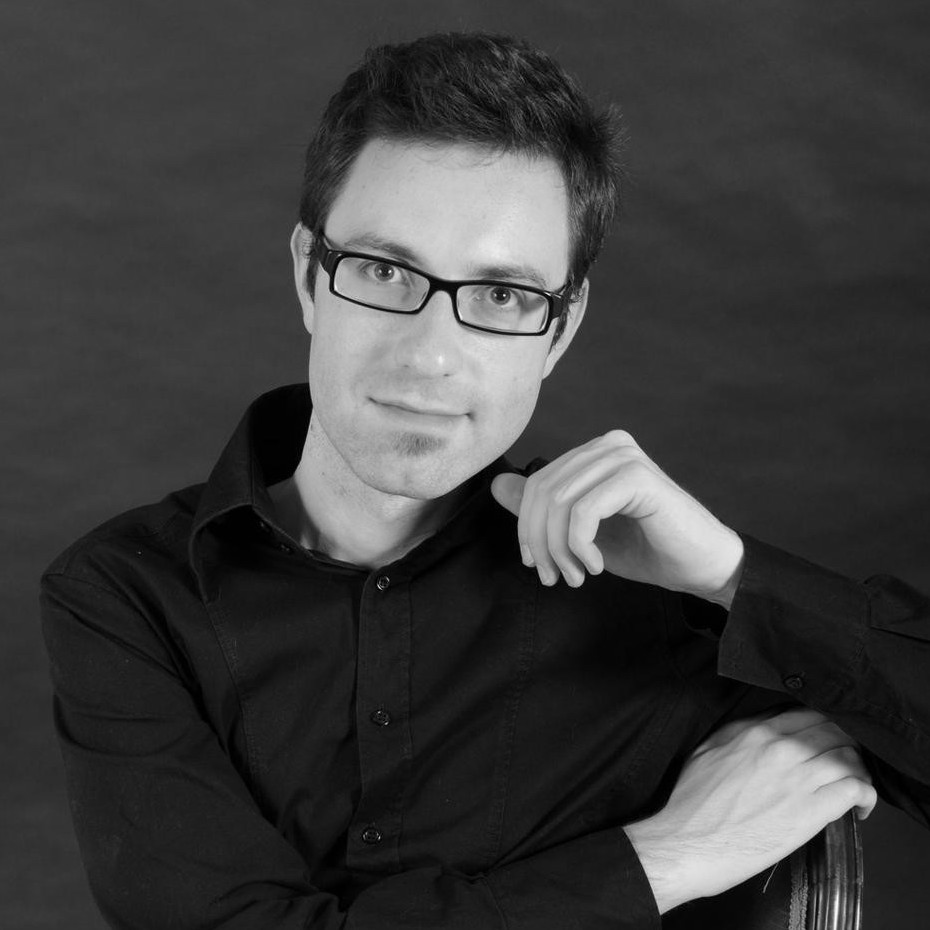
SIMONE VEBBER
Simone Vebber was born in Trento in 1983. He studied Ancient Organ with L. Ghielmi at the Accademia Internazionale di Musica in Milan. He graduated in Organ and Piano (cum laude) at the Conservatory F. A. Bonporti in Trento (Italy). Vebber received the Concert Diploma at the Schola Cantorum in Paris, studying with J. P. Imbert and he had the First Prize in Organ Improvisation in the class of P. Pincemaille at the CNR of Saint-Maur (Paris). He participated in the interpretation masterclasses with L. Lohmann, J. C. Zehnder, Bine Bryndorf, Brett Leighton and P. D. Peretti. He won numerous prizes at the prestigious European competitions and festivals: 1st Prize in Alessandria – Italy, 1st Prize in Pistoia – Italy, 1st Grand Prize and Public Prize at the J. S. Bach Organ Competition in Saint Pierre lès Nemour – France (2005), 1st Prize at the J. J. Fux international organ competition in Graz – Austria (2010), and the Peter Hurford Bach Prize at the Competition of The St Albans International Organ Festival (2011). He has recorded for Suonare Records, Radio Vaticana, Diapason Edition, Mascioni, ORF and Discantica. He played concerts in many important organ venues and organ festivals in Vienna, Riga, Paris, Milan, Rome, Warsaw, Rio de Janeiro, etc. Vebber played as a soloist with important orchestras like the Mozart Orchestra conducted by Claudio Abbado. On the occasion of the 100th anniversary of the death of French composer and organist Camille Saint-Saëns, Vebber and the Da Vinci Publishing started the project dedicated to the complete exploration of the work by the French composer who is often too relegated to the margins of a late romanticism, and first CD has been published this year. Simone Vebber is Organ Professor at the Conservatory G.Donizetti in Bergamo and Improvisation Professor at the Academy of Old Music C. Abbado in Milan.
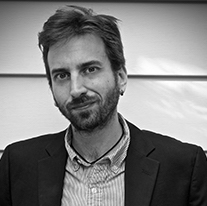
ANDREA SCHIAVIO
Andrea Schiavio received his PhD in Music from the University of Sheffield (2014), studying musical skill acquisition and development through the lens of embodied cognitive science. After his doctoral studies, he continued this research as postdoctoral fellow in the USA (School of Music, Ohio State University), Turkey (Department of Psychology, Bosphorus University), and Austria (Institute for Music Education, University of Music and Performing Arts Graz) gaining relevant interdisciplinary experience.
From 2017 to 2022, he was based at the Centre of Systematic Musicology of the University of Graz. Here he was PI of a “Stand Alone” project funded by FWF, the Austrian Science Fund, between 2019 and 2022. This grant (€ 441,042.00) allowed him and his collaborators to explore innovative ways to conceptualise, assess, and enhance musical creativity in diverse pedagogical and performative settings. In 2017 he was awarded a “Lise Meitner” Fellowship by FWF (€ 148,480.00) to conduct research on musical participation in teaching and learning, helping to shed new light on the intersubjective nature of music pedagogy.
Andrea is currently President of ESCOM (the European Society for the Cognitive Sciences of Music), and one of three founders and Editors of the newly established book series Music as Art and Science (OUP). In addition to a recently published co-authored monograph for MIT Press (Musical bodies, musical minds. Enactive cognitive science and the meaning of human musicality), his work appears in venues such as Music Perception, Scientific Reports, Psychology of Music, Phenomenology and the Cognitive Sciences, Journal of Research in Music Education, and The Oxford Handbook of Musical Performance, among others. He joined the University of York in 2022 as a Lecturer in Music Education.
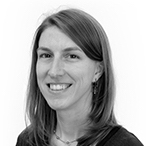
LAURA BISHOP
Laura Bishop’s research focuses on the cognitive processes involved in creative musical interaction. She is especially interested in how creative collaboration unfolds in the context of skilled music ensemble performance, when predictability and coordination must be balanced with flexibility and spontaneity. To address this question she runs experiments investigating ensemble musicians’ communicative behaviour; in particular, their body gestures and visual attention. She also looks at how this behaviour is perceived by others (co-performers or audience members). She is currently researcher at the University of Oslo.
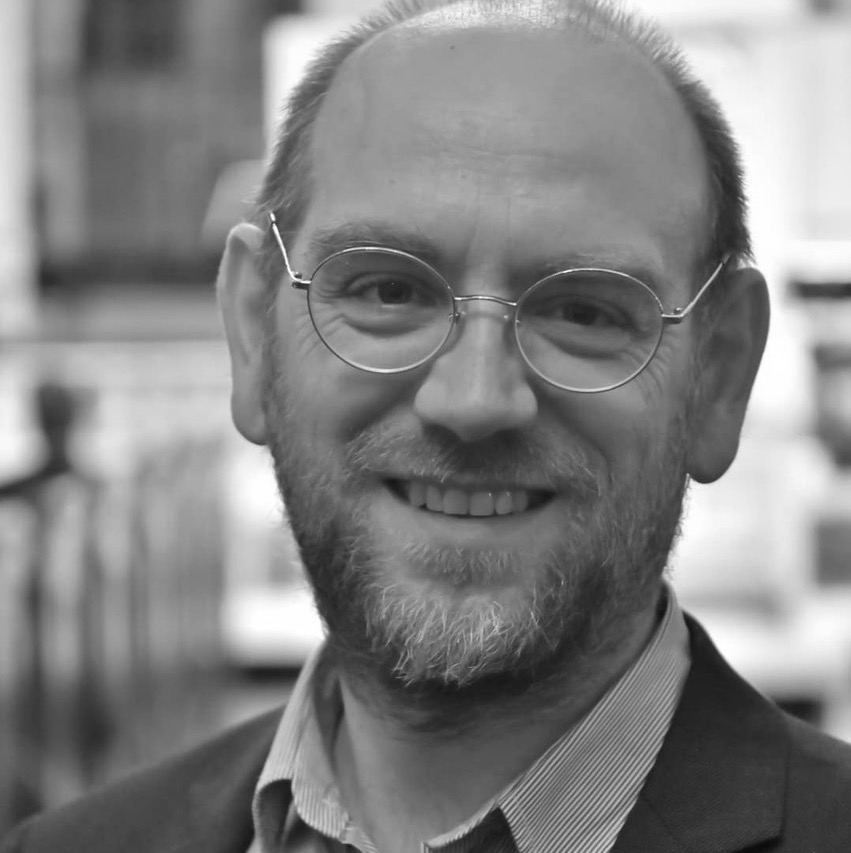
WALTER CHINAGLIA
After obtaining his degree in Physics in 1996 and having spent five years of research in non-linear optics at the University of Insubria, Como, Walter Chinaglia started his workshop Organa in 2001.
He is internationally renowned for building historically-informed pipe organs and harpsichords, using traditional materials and techniques. Driven by his spirit of research, he conceives every single instrument based on the study of numerous historical sources, in particular when rebuilding Medieval portative organs.
Between 2018 and 2020 he participated as Research Fellow in the Leibniz Society-funded project “Building of a new organo di legno” within the research group “Materiality of musical instruments” led by Dr. Rebecca Wolf, at the Deutsches Museum of Munich.
He is often invited by relevant institutions to give lectures on his own research: the 47th Medieval and Renaissance Music Conference 2019 in Basel; the Göteborg International Organ Academy, the Accademia di Belle Arti di Brera di Milano, the Fondation Académie D’Orgue de Fribourg, among others.
Since 2005 he has regularly held courses on historical temperaments and tuning techniques. He is author and co-author of several papers on Physics and organ building.




